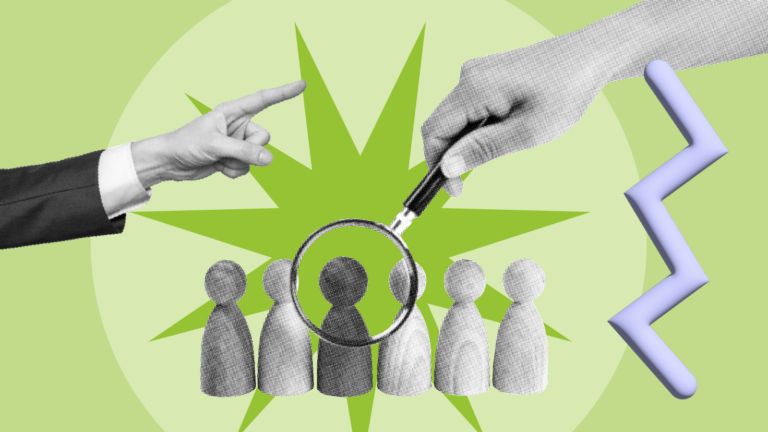
La feuille de route pour un développement efficace des compétences à l'ère moderne

Are you curious about how to do more than just get by, but actually flourish in today’s fast-paced job market? The secret ingredient is effective skill development – it’s a journey that’s as rapidly changing as the world we live in.
Join us as we explore how you can tap into your deepest capabilities and soar to new heights.
This isn’t just about keeping your head above water; it’s about learning to swim with the current and use it to your advantage.
Effective skill development adapts with the times, ensuring that you’re equipped with the tools and knowledge necessary to succeed. So, let’s dive in and chart the course to unlocking your utmost potential in the workplace.
Defining skill development
Skill development is the continuous journey of pinpointing the areas where your skills could use a boost and actively acquiring new abilities to meet the ever-changing demands of the global landscape.
It goes beyond merely cramming information into your memory. Instead, it’s about sharpening and shaping your talents to create a distinctive space where you stand out.
Think of it as sculpting your professional self. You’re not just adding clay here and there; you’re meticulously crafting and refining your shape in the professional world.
It’s about strategic growth, ensuring that every new skill you learn not only fills a gap but also adds to your unique profile, making you an invaluable asset in your field.
Importance in the modern age
In an era where the winds of change are ever-present, ensuring that your skills remain relevant is not just important, it’s imperative. Skill development is far from a mere luxury; it is an absolute necessity.
It’s the fuel that powers your journey ahead of the innovation curve, transforms you into a valuable resource for any team, and, perhaps most crucially, it’s the ingredient that keeps your personal and professional growth in life invigorating and your enthusiasm for your career burning bright.
This commitment to cultivating your skills is what allows you to not just keep cognitive skills up with the times but to drive progress within them.
It’s what sets you apart in a crowded job market, making your career path not merely a series of jobs but a testament to continual growth and a passion that stays alight through every challenge and triumph.
The evolution of learning
Traditional vs modern learning methods
The era of standardized, uniform education has been replaced by an age where learning is customized, digital, and readily available to all.

Instead of the old-school, lecture-heavy approach, we’re shifting towards dynamic, technology-enabled educational experiences that are tailored to meet the diverse needs of each learner’s style.
Impact of technology on skill acquisition
The digital revolution has reshaped the terrain of education, introducing artificial intelligence tutors and mobile learning applications that allow for learning on-the-go.
This new era has leveled the playing field, granting anyone with an internet connection the opportunity to acquire new skills and broaden their horizons.
Identifying core skills for success
Soft skills that make a difference
It’s essential not to underestimate the power of compétences non techniques. These include proficient communication, the agility to adapt, and innovative problem-solving—qualities that often don’t get the spotlight they deserve.
Yet, these are the very specific skills that can make the difference in successfully maneuvering through the intricacies of today’s dynamic work environments.
In a world where technical skills may get your foot in the door, it’s the soft skills that enable you to collaborate effectively, respond to changes with resilience, and find creative solutions to unexpected challenges.
They are the silent force that can elevate your career, enhance team dynamics, and contribute to a harmonious and productive workplace. Remember, while hard skills may outline the contours of your job, it’s the soft skills that fill in the vibrant colors of your career canvas.
Hard skills in high demand
Then we have hard skills, the measurable and teachable abilities that are often highlighted in job descriptions and resumes.
Examples like coding, data analysis, and digital marketing are not just buzzwords but essential business competencies that are in high demand across various industries in the current job landscape.
These are the skills that can be specifically evaluated and improved through training and practice, offering a clear benchmark for employers when selecting candidates.
In a marketplace that’s increasingly driven by technology and data, proficiency in these particular skill areas can significantly boost your employability, giving you a tangible edge in your professional pursuits.
Personalized learning paths
Understanding your learning style
Do you absorb information best through visuals, or do you find that hands-on practice is where your learning really takes flight? Recognizing your optimal learning style is a crucial initial move towards designing a learning journey that’s tailored just for you.
This self-awareness allows you to craft an educational experience that resonates with your way of understanding the world, ensuring that your educational pursuits are as individualized as your fingerprints.
Tailoring your development plan
Understanding your preferred learning style unlocks the potential to customize your growth trajectory. You can then set precise goals, carefully select resources, and construct a timeline that harmonizes with both your personal growth and career ambitions.

This strategic approach allows you to channel your educational efforts in a direction that not only enhances your skill set but also propels you towards realizing your aspirations.
Building a supportive network
The role of mentorship
The journey of skills development can be a labyrinth, but you don’t have to navigate it alone. A mentor can be a compass—someone who has walked the path and can guide you through the turns and dead ends. They can provide invaluable insights that books or online courses simply cannot.
Creating a community of learners
Embarking on the path to skill development involves much more than just picking up new capabilities; it’s about wholeheartedly adopting a culture of lifelong learning. This attitude of constant self-enhancement is not merely beneficial—it’s imperative for anyone aiming not just to withstand the winds of change, but to harness them for both personal development and professional advancement.
This commitment to growth means actively seeking out new knowledge, challenging oneself with fresh experiences, and being ready to pivot when the situation demands. It’s about recognizing that every day brings opportunities to expand your horizons and that the pursuit of excellence is a never-ending journey.
By nurturing this growth mindset, you position yourself to be resilient, versatile, and forward-thinking, all of which are key qualities for success in the modern age. Embrace this approach, and you open the door to a lifetime of achievements and satisfaction.
Leveraging online platforms
Platforms such as LinkedIn and Coursera, along with specialized forums pertinent to your field of interest, can act as treasure troves for networking and gathering sage advice.
They provide avenues to forge connections with industry stalwarts, keep abreast of the latest trends, and uncover opportunities that dovetail with your burgeoning skill set.
Overcoming obstacles
Dealing with information overload
Developing the ability to sift through the relentless stream of data and zero in on content that genuinely adds value is a crucial skill for any proactive learner.
To navigate this deluge of data, tools such as RSS feeds, which allow you to receive updates from your favorite websites, curated newsletters that bring a selection of tailored content straight to your inbox, and learning management systems that organize and track your educational progress, can be indispensable.
These resources not only streamline your information intake but also ensure that the knowledge you acquire is relevant, high-quality, and conducive to your personal and professional development.
Staying motivated through challenges
The journey towards proficiency in new skills is often winding and filled with challenges. To navigate this path, it’s important to establish incremental, attainable goals that serve as stepping stones to your larger objectives.
Taking the time to acknowledge the process and celebrate each triumph, no matter how small, reinforces your progress and boosts morale. Above all, embracing a growth mindset, where setbacks are seen as opportunities to learn and improve, is essential in keeping your motivational fire alight and pushing forward towards your ultimate aspirations.
Embracing lifelong learning
Keeping skills fresh
Keeping pace with this perpetual motion requires adopting a philosophy of lifelong learning. It’s about nurturing a persistent curiosity, embracing the inevitability of change with an open mind, and relentlessly pursuing opportunities to refresh and enhance your skillset.

This approach not only enriches your expertise and skills development but also ensures that you remain a relevant and dynamic participant in your chosen field.
Predicting future skill needs
Although predicting the future with precision is beyond our grasp, we can certainly make informed projections based on current trends.
Keeping a watchful eye on the pulse of your industry, recognizing emerging technological innovations, and understanding shifts in market demands are key strategies for forecasting the skills that will be in high demand.
By staying ahead of the learning curve and preparing for the future proactively, you can position yourself to seize opportunities and meet the challenges of tomorrow’s professional landscape.
Conclusion
Crafting a successful path in développement des compétences transcends the mere accumulation of abilities; it requires embracing a philosophy of perpetual growth.
In today’s fast-paced world, such an adaptive mindset is your gateway to not just enduring but flourishing in both your personal endeavors and professional career.
This continuous journey of learning and self-improvement is what equips you to navigate and excel amidst the ever-changing landscapes of life.
The DevSkiller TalentTech Platform is designed to help design employee skills development paths – find out how!
Planifier une démonstration avec l'un de nos experts produits ou regardez cette vidéo rapide. Vidéo de démonstration de 5 minutes pour en savoir plus.
FAQ
- 1. What is the most effective way to identify skill gaps?
- Start by analyzing job descriptions in your field, seeking feedback from peers and mentors, and reflecting on your own performance and interests.
- 2. How important are soft skills compared to hard skills?
- While hard skills may get you hired, soft skills often determine your ability to navigate the workplace, collaborate with others, and lead effectively.
- 3. Can you learn new skills at any age?
- Absolutely. Learning is a lifelong endeavor, and the brain remains capable of growth and change throughout life.
- 4. How do you stay motivated when learning becomes challenging?
- Keep your end goals in sight, mix up your learning methods to stay engaged, and don’t hesitate to seek support from your network.
- 5. What’s the best way to predict future skills that will be in demand?
- Stay informed on industry trends, emerging technologies, and economic forecasts, which can all provide clues about future skill requirements.




